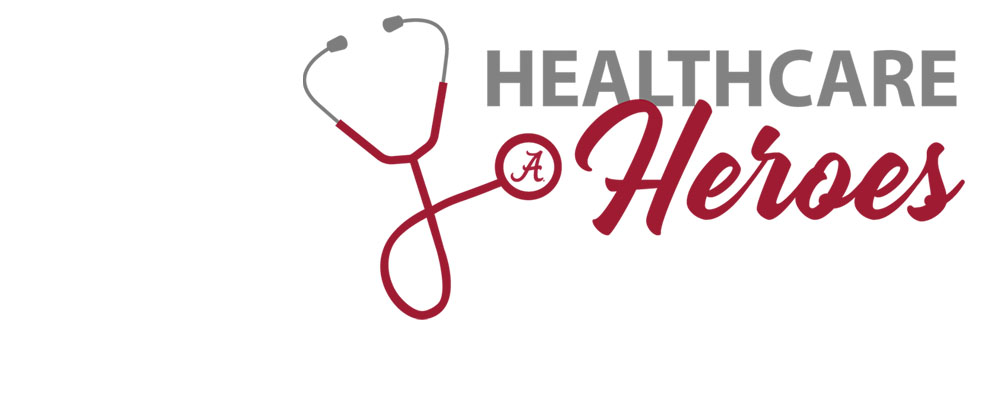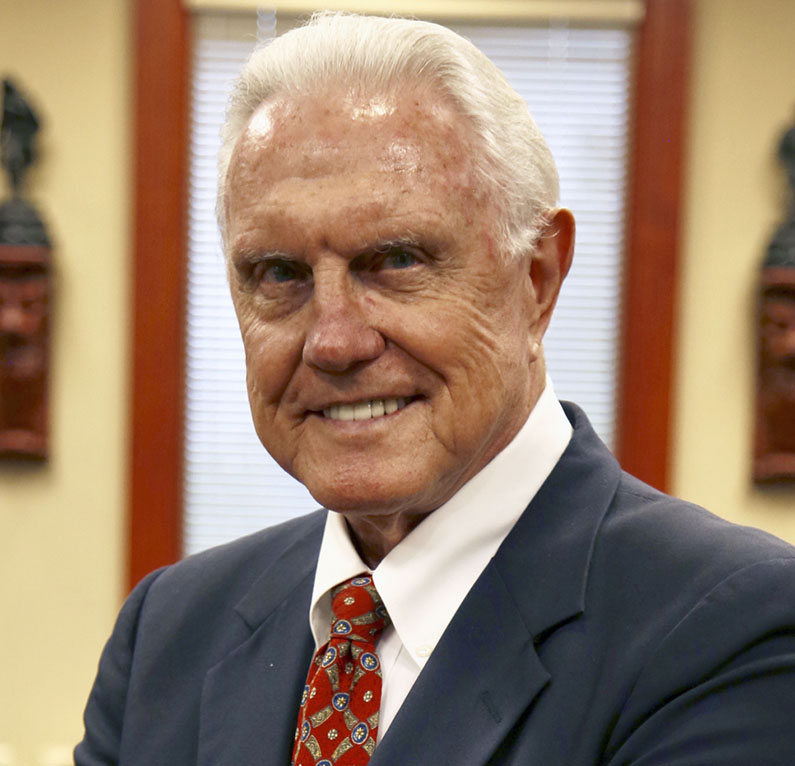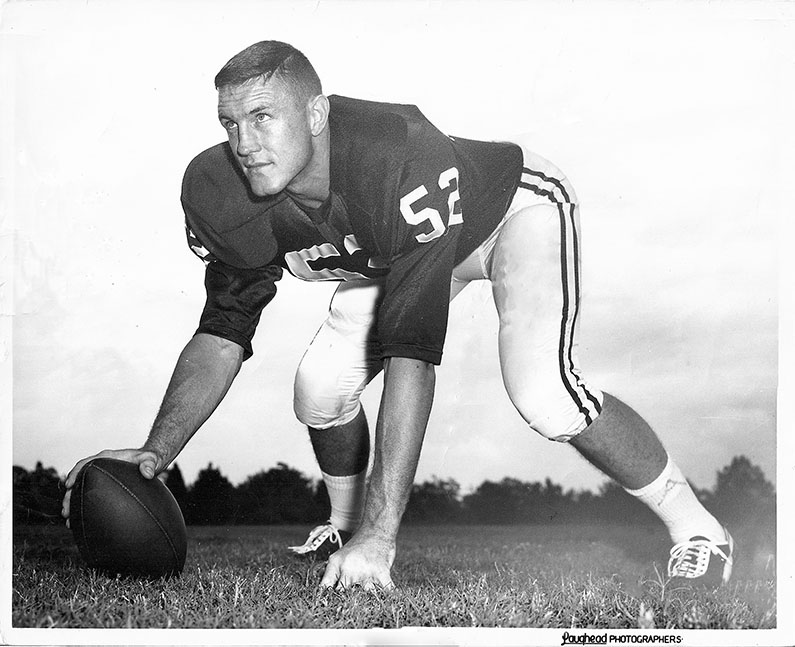Dr. E. Gaylon McCollough, FACS
Facial Plastic Surgeon | Gulf Shores, AL | Football (1962-65)
When you think back on your time at Alabama, what comes to mind?
As a player under Coach Bryant, I knew that my teammates and I were part of something special. However, as an 18-22 year-old, I'm not sure that I fully appreciated then how special it was to be part of a championship program and to win a coveted national championship ring. A half a century later I still wear that ring. In my mind, it represents a focused mission, dogged determination, extraordinary effort, and unselfish teamwork. Sometimes it takes looking back to realize everything that was required to be a consistent winner ‐ in the game of life, as well as in sports.
When you think about how your time at Alabama stays with you long after you've left campus, what would you say is the most "Alabama in me" thing you carry with you today?
The "Alabama in me" today is to demonstrate class and dignity in everything that I do, exhibit pride in the legacy of champions that I inherited, and do my best to propagate that legacy every day that I am able ‐ to never do anything that would embarrass my alma mater, my family, my mentors or my staff; And to only bring honor to every endeavor in which I am affiliated.
How did your student-athlete experience at Alabama prepare you for your role in the medical profession?
Coach Bryant was a stickler for attention-to-detail and for the avoidance of making careless mistakes ‐ to strive to improve, even a little bit, every day, in every way. It is the same mentality that I learned on my way to becoming a medical student, physician and facial plastic surgeon. Because my teammates and I devoted an average of six hours per day towards football workouts, practices, meetings, and reviewing films of our opponents, we had to budget time for our studies when other students were engaged in social activities. Learning about time management as a student-athlete became valuable when I entered medical school, during the clinical years of my training, and in my practice.
What is your role in the fight against COVID-19?
In my practice, we are exercising the "abundance of caution" advice that has been recommended by health officials. We are testing every patient who is scheduled for a surgical procedure to make sure that we do not increase exposure to other patients and staff ... or put them at additional risk. I have also shared ‐ through mass emailing ‐ pertinent information and advice with my patients and clients. I've tried to use whatever influence I have to stress vigilance but to avoid panic or fool-hearted behavior.
What are you most looking forward to when the pandemic subsides?
Being able to demonstrate true friendship and gratitude by handshakes and appropriate hugs are at ‐ or near ‐ the top of my list. I also am looking forward to the return of larger gatherings of friends for events and celebrations and sporting events.
The international publication Cosmetic Surgery Times labeled you a "Renaissance Man" for several different accolades including being the first president of the American Board of Facial Plastic Surgery & Reconstructive Surgery and the President of the Academy and Foundation that represents the specialty of facial plastic surgery, to name a few. How did your time playing football at Alabama inspire you to become an industry leader?
When an internationally-recognized medical publication used the term in an article about my career I was honored beyond description. It only came in second to the day (in 2017) I stood at midfield in Bryant-Denny Stadium and received the University of Alabama National Alumni Association's Paul W. Bryant Alumni-Athlete Award.
Coach Bryant often talked about leadership and service. He challenged us, his players, to become leaders on the practice field and during games by our actions. We were taught not to be satisfied with an "ordinary" performance and to encourage our fellow teammates to put forth extraordinary effort in everything we attempted. When elected to positions of leadership, I used the skills I had observed in my coaches and medical mentors to serve ‐ to put the organization's interests ahead of myself. I used the same principles I learned as a student-athlete, that resulted in championship performances, to steer organizations through difficulties and trying times.
What life lessons did you learn under legendary coach Paul "Bear" Bryant?
The takeaway message from Coach Bryant's mentorship is best summarized in a statement most often identified with him: "If you believe in yourself and have dedication and pride and never quit, you'll be a winner. The price of victory is high, but so are the rewards."
Another statement that he often made to us prior to a game is this: "Today, in front of your parents, your classmates, and fans, we will show our class. We will win the game with pride and dignity; but should we lose, we will exhibit this place with pride and dignity. As long as we did the very best we could do, individually and collectively, we will hold our heads high and begin to concentrate on how we will overcome this defeat the next time we take the field."
I apply those lessons every day ‐ not only in my surgical practice ‐ but in my life.
*Interviews were conducted in May 2020 and have been edited lightly for clarity and length.


